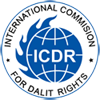Board of Directors
ICDR’S BOARD OF DIRECTORS provides policy and strategic direction for the organization’s governance systems and programs. The Board’s role includes advising technical expertise and endorsing the organization’s strategic objectives, its substantive areas of work, and strategic program activities. The Board evaluates the organization’s progress toward its objectives on an annual basis, reviews annual reports, and brings a broad range of philanthropic, communications, policy, business, and nonprofit management expertise to bear in helping govern the organization. Informed by their diverse experiences, ICDR’s Board is committed to the principles of good governance, transparency and ensuring that ICDR International operates in accordance with evolving best practices for nonprofit management and compliance. We invite you to learn more about our Board of Directors by reading their full biographies.

Dil Bishkarma (DB Sagar)
President, Founder
D.B. Sagar (Dil Bishkarma) born and raised in rural Nepal. He suffered from untouchability, caste discrimination, exclusion and violation as a Dalit, a racial minority, and a national origin.
Mr. Sagar is a global human rights and social justice activist, social entrepreneur, and a Dalit Rights advocate, and a defender of rule of law and inclusive democracy. He received two advanced degrees, a Master of Legal Studies, specializing immigration & employment and international human rights law; and Master of Arts in Sociology specializing social policy and development from American University in D.C. Mr. Sagar is the president and founder of International Commission for Dalit Rights (ICDR), an organization devoted to combat caste discrimination and exclusion. He hosted the first ever Global March Against Caste Discrimination in 2014, from the White House to Capitol Hill and the Global Conference on Dalit Rights in 2015 in Washington, DC that has started Caste Debates in the United States, and globally.
Mr. Sagar has spent two plus decades fighting untouchability, caste discrimination, exclusion, inequality and injustice against Dalits, racial minorities, and underprivileged people. He brings leadership expertise in intersectional and interfaith strategic advocacy, and public services in the organization and Dalit/civil Rights Movements. He has been involved in social and racial justice movements linking Dalit Lives Matter to Black Lives Matters. Mr. Sagar has developed the Caste Freedom Index that provides leading data source, trends and status of caste discrimination and exclusion against Dalits globally.
Mr. Sagar has routinely briefed to the U.S. Department of State, USAID, DFID, United Nations, World Bank, and European Commission. He has testified before the UN Intergovernmental Negotiations on the Post-2015 Development Agenda, the UN Committee on Elimination of Racial Discrimination; the UN Human Rights Sub-Committee; the European Parliament; and the British House of Commons on matters of Human Rights, equality, and inclusive democracy. He was actively engaged in the UN World Conference against Racism in 2001 and World Social Forum 2024 in Nepal.
He co-authored policies, including a Memoranda to recognize and enforce ‘caste’ under Title VII Civil rights law by the US Equal Employment Opportunity Commission (EEOC), Civil Rights Division of the U.S. Department of Justice, and U.S. Department of State; Reservation (Affirmative) Policy for Dalits in Nepal, Dalit Rights Global Declaration 2015, etc. He has given public lectures and interviews to news media, including the Associated Press, and Bloomberg Law. Mr. Sagar has written articles/reports and provided expert commentary on a wide range of civil/human/Dalit rights issues, focusing on the issues of DEIA, rule of law, and public policies.
He regularly collaborates with a range of stakeholders, such as Dalit and civil rights organizations, national and regional networks as well as UN and federal agencies in the course of caste, race, human/Dalit rights, immigration & employment justice, criminal justice reform, DEIA strategies and governance works. Prior to joining the ICDR, DB Sagar was National President at Dalit NGO Federation of Nepal, where he worked with leaders of government, international development agencies and civil society organizations. Mr. Sagar recognized the need to globalize Dalit Rights Movement by collaborating with interfaith/intersectional groups, marginalized people and change makers to promote dignity, inclusion, and human rights with respect for all, especially Dalits and racial minorities.
Mr. Sagar has briefed leadership of the U.S. Department of State, USAID, DFID, United Nations, World Bank, and European Commission on several occasions. He has testified before the UN Intergovernmental Negotiations on the Post-2015 Development Agenda, the UN Committee on Elimination of Racial Discrimination; the UN Human Rights Sub-Committee; the European Parliament; and the British House of Commons on matters of Human Rights, equality and inclusive democracy. He was actively engaged in the UN World Conference against Racism in 2001. He hosted the first ever Global March Against Caste Discrimination in 2014 and the Global Conference on Dalit Rights in 2015. He co-authored several policies documents, including Reservation (Affirmative) Policy for Dalits in Nepal, Dalit Rights Global Declaration 2015, and policy memoranda for US Equal Employment Opportunity Commission, U.S. Department of Justice, and U.S. Department of State to recognize and enforce ‘caste’ as nondiscriminatory law.
Prior to joining the ICDR, DB Sagar was National President at the Dalit NGO Federation of Nepal, an apex organization of more than 500 Dalit NGOs and civil society organizations, where he worked with leaders of government, international development agencies and public institutions. He also works at Innovative Microfinance Corporation, which specializes in microfinance, community empowerment, capital development, and social enterprise.
He has given public speeches/lectures and interviews to news media, including the Associated Press, and Bloomberg Law. Mr. Sagar has written articles/reports and provided expert commentary on a wide range of civil/human/Dalit rights issues, focusing on the issues of social justice, government accountability, rule of law, public policies. He has firsthand experienced of discrimination, harassment and violence based on caste, ancestry, and descent.
Mr. Sagar received a Master of Law (LL.M.) degree from American University Washington College of Law and graduated in Sociology from the American University, D.C. He is a certified Project Management Professional (PMP) from Project Management Institute.
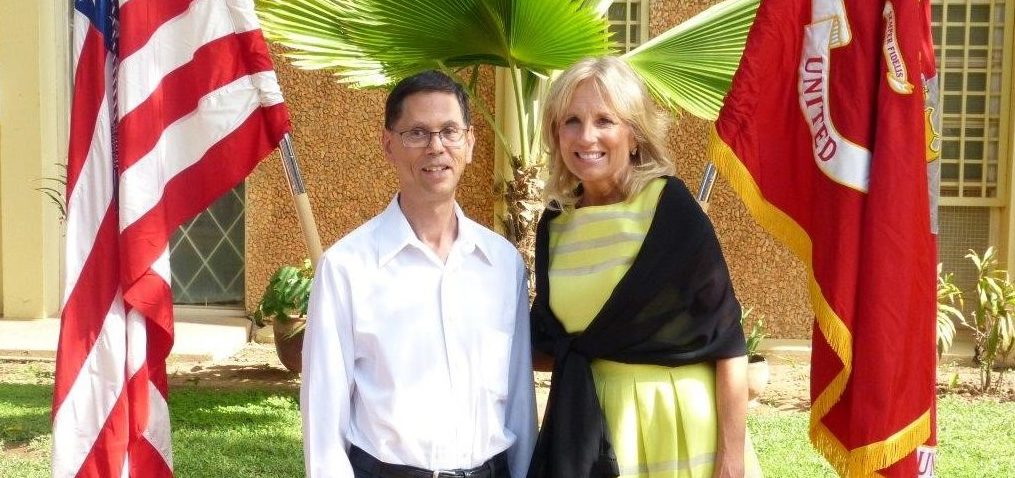
Rick Gold
Chair of the Board; International Development and Rule of Law Consultant
Rick Gold is an international development and rule of law consultant with an expertise in human rights and gender programming. He has led evaluations and assessments of justice systems and the status of minorities and women in the Democratic Republic of Congo, Haiti, Jordan and Timor-Leste. At two firms, he provided technical leadership for human rights, women’s rights, anti-corruption, and rule of law programs. He oversaw a human rights program in Colombia that targeted indigenous and Afro-Colombian groups in zones of conflict.
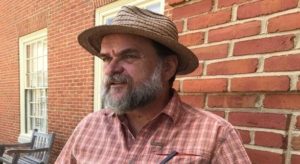
Steven Folmar, Ph.D.
Vice Chair of the Board and CFI Expert; Faculty Chair and Associate Professor of the Department of Anthropology at Wake Forest University, Winston-Salem, NC
Dr. Steven Folmar has served as a founding Board member of the ICDR since 2009 and also Served as a CFI Expert. Dr. Folmar is currently Chair and Associate Professor of the Department of Anthropology at Wake Forest University, Winston-Salem. Since 2001, he has committed his research to issues affecting Dalits. He has written several articles and done extensive research on Dalit Identity, Rights and Mental Health. He also conducts workshops in Nepal for Dalit Scholars.
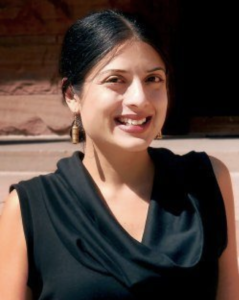
Purvi Mehta, Ph.D.
Board Member; Assistant Professor at Colorado College
Dr. Purvi Mehta is an Assistant Professor at Colorado College in Colorado. She had served as an Advisor at ICDR International before serving on the board. She has been doing research on caste, gender, and human rights issues in India. Her book manuscript - tentatively titled Recasting Caste: Histories of Transnational Dalit Activism and the Internationalization of Caste Discrimination - analyses post-independence Dalit activism in India. It explores how activists have connected with other global social justice movements and how activists have increasingly turned to human rights for recourse against caste based discrimination and violence.
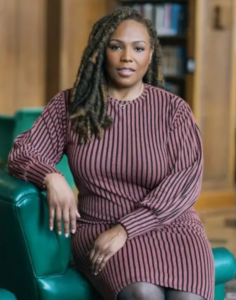
Kenya Tyson, Esq.
Board Member; Senior Associate Provost at Dartmouth College
Kenya Tyson, JD is an internationally recognized criminal justice expert and higher education executive, with expertise in the fields of race, crime, and inequality. Kenya is the Senior Associate Provost at Dartmouth College. In this role, she serves as the Provost’s chief advisor and oversees government and community affairs, institutional research, resource planning, and operations. She is also the founder and Executive Director of The Black Massacre Project. The Black Massacre Project is an independent public research center that explores the historical race massacres perpetrated against black communities in the United States. The Project serves as an interdisciplinary nerve center that brings scholars, historians, activists, students, and community members together to engage in collaborative research and cultural exchange, and to explore the role of race-based violence in the greater context of American society.
Prior to working at Dartmouth College, she served as Assistant Provost of Academic Affairs and University Curriculum at The New School (NYC) and the Associate Dean of Academic Programs and Student Services at Rutgers University School of Criminal Justice, where she successfully led the university’s effort to develop a prison education program. In addition to her 20-year career in law and higher education, Kenya has consulted with courts and other government agencies across the nation on procedural justice and racial and ethnic disparity (RED) initiatives. She has worked with universities and human rights organizations around the globe, facilitating trainings on Title IX, crime prevention and diversity, equity, and inclusion (DEI), and has served in an advisory capacity for several professional organizations.
Kenya’s extensive service includes work with the U.S. Department of Justice Office of Juvenile Justice and Delinquency Prevention (OJJDP), NJ LEEP (Law and Education Empowerment Project), and the Community Justice Advisory Board for the Essex County Prosecutor’s Office. She currently serves as Vice President and Chair of the Community Service and Social Justice Committee for the Garden State Bar Association and as Co-Chair of the Public Policy and Advocacy Committee for the Metropolitan Black Bar Association. Kenya is also a member of the New Jersey Supreme Court Advisory Committee on Access and Fairness and the Review Board of Appeals for the Accrediting Council for Independent Colleges and Schools (ACICS).
A Fulbright Scholar, Kenya has received recognition and awards in honor of her service and scholarship. She has been recognized by the Essex County Prosecutor’s Office and the National Organization of Black Law Enforcement Executives in appreciation of her support to the Citizens of New Jersey. Kenya is a fellow of the Higher Education Leadership Foundation and was recognized by the National Gang Crime Research Center as a recipient of the prestigious Frederick Milton Thrasher Award for her scholarship on gang courts. She was named one of the New Jersey Law Journal’s Diverse Attorneys of the Year and a Martin Luther King Jr. Champion for Justice honoree for the NJ Governor’s Jefferson Award. Kenya is also a recipient of the Descendants of Rosewood Foundation, Inc.'s 2023 Presidential Lifetime Achievement Award Gold Medallion.
Kenya earned a JD from Widener University Delaware Law School, a MS in Criminal Justice, with an emphasis on Criminal Behavior Analysis from the University of Cincinnati, and a BA in Political Science from Winston-Salem State University. Kenya is also a member of Alpha Kappa Alpha Sorority, Incorporated.
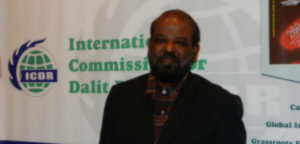
Rev. Gideon Jebamani, Ph.D.
Board Member and Chaplain for New York State Ministerial Department, New York
Rev. Dr. Gideon Jebamani has joint the ICDR as an Advisor in 2014 and since then he has been servicing the organization in various capacities. Most recently, ICDR board has nominated Rev. Jebamani as a Board of Directors of the organization for the term 2020-2022. Rev. Jebamani from Chennai of Tamil Nadu, India and has been residing in the New York state since three decades. He has been serving as a Church Minister since 1984. Rev. Jebamani is working as a Chaplain for New York State Ministerial Department currently; and also a Priest and Pastor for the New York Episcopal Diocese.
Beside these services, Rev. Gideon Jebamani is an ardent Human Rights Advocate, an Ambedkarite and above all a grass root level Social Activist. Rev. Jebamani has been associated with local, regional and international level Dalit human rights conferences and advocacy campaigns. He has a great passion for the Socially Marginalized Communities and specifically the socially excluded Dalits in India and across the world. He introduced Dalit situation and Caste reality among the non-Indian North American and Churches and Theological Institutions throughout his lifetime service.
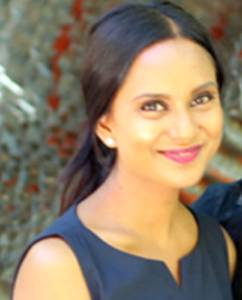
Neha Kumar
Board Member and Senior Lawyer with Disabilities and Affordable Housing in Australia
Neha Kumar serves as a Board of Directors. Since Feb 2017, Ms. Kumar has been a part of the ICDR International as Vice President. She joined the organization as she is passionate about social justice and law reform and committed to attaining equal rights for Dalits and other marginalized groups. Ms. Kumar worked as a Senior Lawyer with the Disabilities and Affordable Housing team in Australian Social Services and delivered advice as well as drafted legislation for a range of commercial, administrative law, disability discrimination and international law matters.

Myer Glickman
Board of Director and Senior Manager/Statistician with the UK government’s Office for National Statistics
Myer Glickman has been serving as a Board Director and a CFI Expert at the International Commission on Dalit Rights (ICDR International). Myer began conferring with the ICDR International in 2013 with a Statistics Without Borders (SWB) consulting team supporting the development of the CFI. A senior manager and statistician with the UK government’s Office for National Statistics, Myer has led the development of many statistical indicators for the UK government.
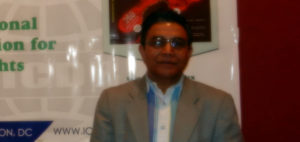
Krishna Sob
Mr. Krishna Sob is a Board Member of ICDR and has served as Co-Chair for number of the Sub-Committees to lead important issues. Mr. Sob is also currently serving as the Director of International Programs at Central Asia Institute. Professionally, Mr. Sob is an international development practitioner with over 25 years of program management practical experience. He has worked in about fifteen countries around the world and has provided leadership and management oversight to international programs including education, public health, community mobilization, food security, economic development, emergency response, and poverty reduction.
Krishna serves as board member and advisor to a half dozen of organizations of diaspora Nepali communities in the United States. Krishna currently resides in the US but has been continuously working to support the Dalit movement in Nepal and around the world.
